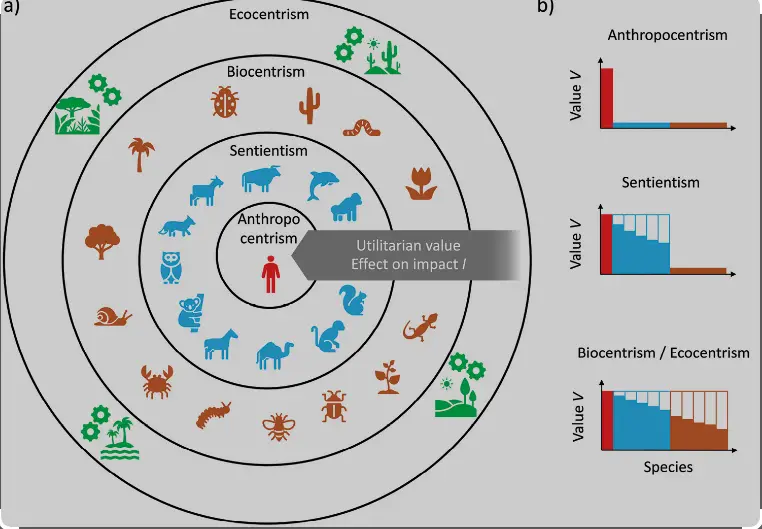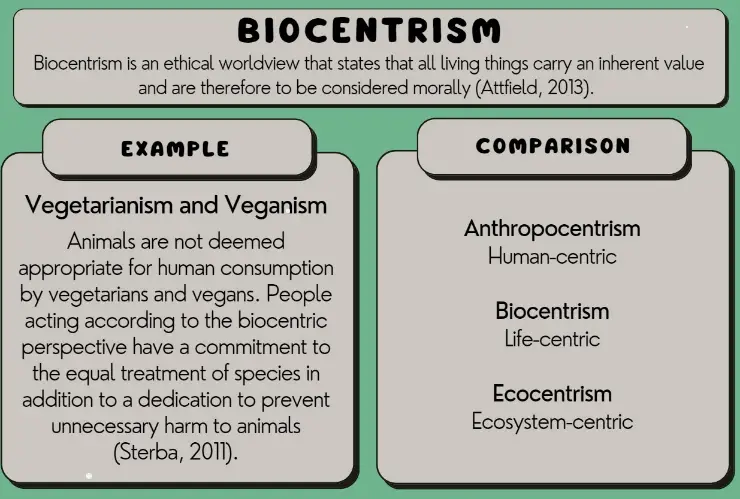Environmental philosophy shapes our approach to nature and influences decisions that affect the ecological balance of our planet. Different schools of thought, such as anthropocentrism, biocentrism, and ecocentrism, offer unique perspectives on the relationship between humans and the environment. These views frame our understanding of what it means to live sustainably and ethically with nature.
Anthropocentrism places humans at the center of moral concern, viewing nature primarily as a resource for human use. In contrast, biocentrism argues that all living creatures have intrinsic value and rights, advocating for the protection of all life forms. Ecocentrism extends this view to include abiotic elements of the environment, emphasizing the importance of entire ecosystems rather than individual components. These philosophies challenge us to consider different ethical frameworks when interacting with the natural world.
Exploring these ideologies reveals the deep philosophical underpinnings that guide environmental policies and personal beliefs. By examining how each philosophy influences our actions, we can better understand the potential impacts on future sustainability and ecological integrity.

Anthropocentrism Explained
Definition and Core Beliefs
Anthropocentrism is a philosophical viewpoint that considers humans to be the most significant entity in the universe. This ideology centers on the belief that human beings are of utmost importance and that all environmental resources are primarily for human benefit. Such a perspective often drives policy-making and cultural norms, influencing everything from legislative frameworks to educational content.
Historical Development
The roots of anthropocentrism trace back to early human civilizations. In ancient times, many societies believed that the gods created the world for humans, leading to a human-centered view of the universe. This perspective was significantly shaped during the Renaissance, a period when human potential and value were greatly emphasized. During the Industrial Revolution, anthropocentrism became more pronounced as technological advances made human control over nature easier, thus reinforcing the idea that the earth and its resources exist to serve human ends.
Examples in Policy and Culture
In modern times, anthropocentrism can be seen in various policies and cultural practices. For instance, urban development often prioritizes human convenience over environmental preservation. Laws that govern natural resource extraction are frequently designed to maximize human economic benefits, sometimes overlooking the detrimental effects on ecosystems. Culturally, anthropocentrism manifests in literature, movies, and media where nature is often portrayed as a backdrop to human activities rather than as an entity with intrinsic value.
Biocentrism Overview
Defining Biocentrism
Biocentrism challenges anthropocentric views by promoting the intrinsic value of all living things, not just humans. It argues that all creatures have rights and that there is a moral obligation to respect these rights. This philosophy extends ethical considerations universally to animals, plants, and, in some interpretations, to all forms of life.
Key Principles
The main principles of biocentrism include:
- Life Equality: All forms of life are equally valuable.
- Moral Inclusivity: Ethical considerations must include all living beings, not just human interests.
- Biodiversity Importance: The richness and variety of life are crucial and must be preserved.
Influence on Environmental Ethics
Biocentrism has significantly influenced environmental ethics by advocating for a shift in how humans view their relationship with nature. This approach encourages policies that protect endangered species, conserve habitats, and recognize the rights of nature to exist and flourish independently of human utility.
Ecocentrism Introduction
What is Ecocentrism?
Ecocentrism expands upon biocentrism by including not only living beings but also the non-living elements of an ecosystem as central in importance. This philosophy views the ecosystem as a whole as the primary unit of value, with its health and integrity being prioritized over the welfare of any individual species, including humans.
Core Tenets
The core tenets of ecocentrism include:
- Holistic View: It promotes viewing ecosystems as complex networks where each element, whether biotic or abiotic, plays a crucial role.
- Sustainability Focus: Long-term sustainability of ecosystems is a primary concern, above short-term human gains.
- Interdependence Recognition: There is an emphasis on the interconnectedness of all ecosystem elements and the consequences of disrupting these systems.
Ecocentrism vs. Other Philosophies
Unlike anthropocentrism, which places humans at the center, or biocentrism, which extends value to all life forms, ecocentrism considers the well-being of the whole ecosystem. It challenges both by arguing that the stability of ecosystems should take precedence over the needs of individual species, including humans. This often leads to stronger advocacy for conservation efforts that focus on ecosystem health rather than solely on species protection.

Comparative Analysis
Philosophical Similarities
While anthropocentrism, biocentrism, and ecocentrism differ significantly in focus and ethical priorities, they share a common goal of addressing human interactions with the environment. Each philosophy recognizes the need for a sustainable relationship with the natural world, albeit through different lenses. They all contribute to a broader discourse on environmental responsibility and ethics, encouraging deeper reflection on how human actions impact the planet.
Distinct Differences
The key distinctions among these philosophies lie in their ethical frameworks:
- Anthropocentrism prioritizes human interests, often at the expense of environmental health.
- Biocentrism places the intrinsic value of all life at the forefront, advocating for the rights and welfare of all living beings.
- Ecocentrism emphasizes the importance of ecosystems as whole systems, advocating for the preservation of the entire ecological complex rather than individual components.
Practical Implications
Understanding these differences is crucial for implementing effective environmental strategies:
- Anthropocentrism might lead to policies that support robust economic growth without adequate consideration of environmental degradation.
- Biocentrism could drive legislation that protects animal habitats and biodiversity.
- Ecocentrism may foster comprehensive ecosystem management practices that address the health of entire biomes.
Impact on Environmental Policy
Anthropocentric Policies
Policies derived from anthropocentric views often prioritize infrastructure development, industrial growth, and resource extraction. These policies can result in significant environmental impacts, such as habitat destruction and pollution, justified by economic benefits for human populations.
Biocentric Approaches
Biocentric policies aim to protect and preserve the life of all organisms. Examples include:
- Wildlife conservation acts
- Legal rights for nature
- Restrictions on activities that harm animal and plant life
Ecocentric Strategies
Ecocentric policies focus on maintaining ecosystem integrity. These strategies often manifest in:
- Comprehensive land-use planning
- Protection of ecological corridors
- Climate change mitigation efforts that preserve carbon sinks
Case Studies
Notable Anthropocentric Decisions
One prominent example of anthropocentrism in action is the construction of large dams for hydroelectric power. While providing significant human benefits, these projects often lead to ecological disruption and displacement of local communities.
Biocentrism in Action
The Endangered Species Act in the United States serves as a key example of biocentrism. It has led to the protection and recovery of numerous species at risk of extinction, emphasizing the value of biodiversity independent of human utility.
Ecocentric Initiatives Worldwide
Costa Rica’s national conservation policies exemplify ecocentrism. The country has implemented extensive measures to preserve its rainforests, leading to significant improvements in forest cover and biodiversity, benefiting entire ecosystems.
Future Directions
Trends in Philosophical Adoption
The global shift towards sustainability has seen a gradual adoption of more biocentric and ecocentric policies. As environmental awareness grows, there is an increasing recognition of the limitations of anthropocentrism in addressing the current ecological crisis.
Predictions for Environmental Strategies
Looking ahead, it is likely that environmental strategies will increasingly reflect ecocentric and biocentric principles. This could include:
- Greater emphasis on ecosystem services in urban planning
- More robust international cooperation on biodiversity and climate change
- Innovative legal frameworks that recognize the rights of nature
FAQs
What is Anthropocentrism?
Anthropocentrism is the philosophical viewpoint that human beings are the most important entity in the universe. This perspective considers human needs and interests as the ultimate concern, often at the expense of the natural world.
How does Biocentrism differ from Ecocentrism?
While biocentrism focuses on the intrinsic value of all living things, ecocentrism expands this view to include the ecological systems that sustain life. Biocentrism emphasizes individual organisms’ rights, whereas ecocentrism regards the whole ecosystem as central.
Why is understanding these philosophies important?
Understanding these environmental philosophies is crucial for developing sustainable policies and practices. They influence how we manage natural resources, protect wildlife, and address environmental challenges, shaping our collective impact on the planet.
Can these philosophies impact economic policies?
Yes, these environmental viewpoints can significantly influence economic policies. For instance, an anthropocentric approach might prioritize development over conservation, whereas ecocentrism could lead to policies that promote long-term sustainability over immediate economic gains.
Conclusion
The contrast between anthropocentrism, biocentrism, and ecocentrism highlights the diverse ways in which human societies can approach environmental management and ethical considerations. Recognizing the distinctions and intersections of these philosophies aids in crafting policies that are not only innovative but also respectful of our planet’s complex ecological networks.
As we move forward, the integration of these philosophical insights into global and local policies will be critical to addressing the environmental challenges of our time. Embracing a more holistic and inclusive approach may hold the key to achieving sustainability and harmony with the natural world.

